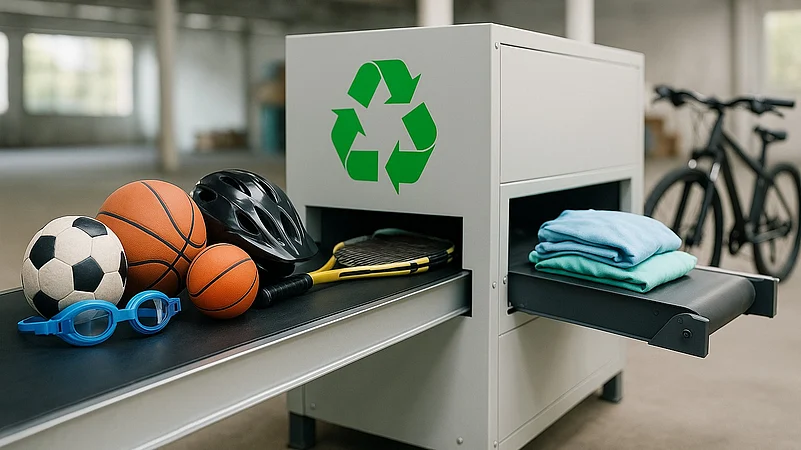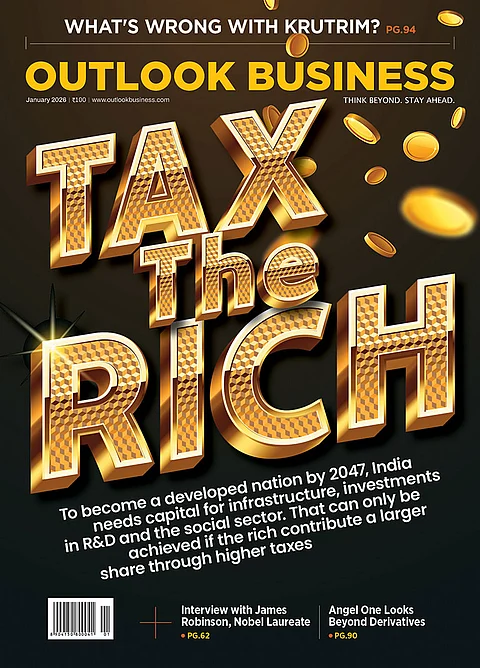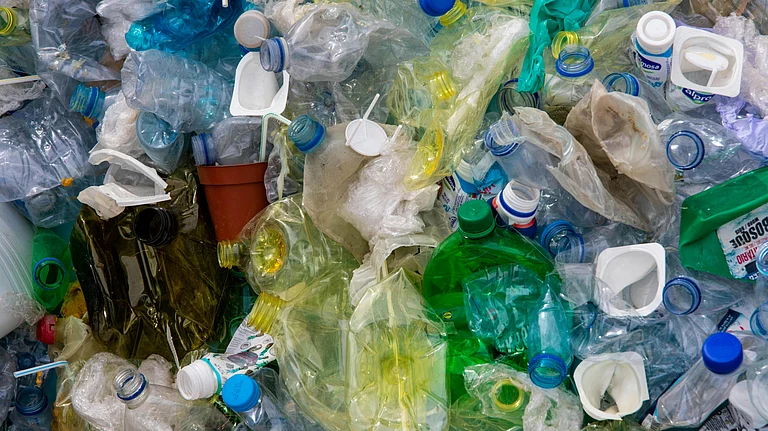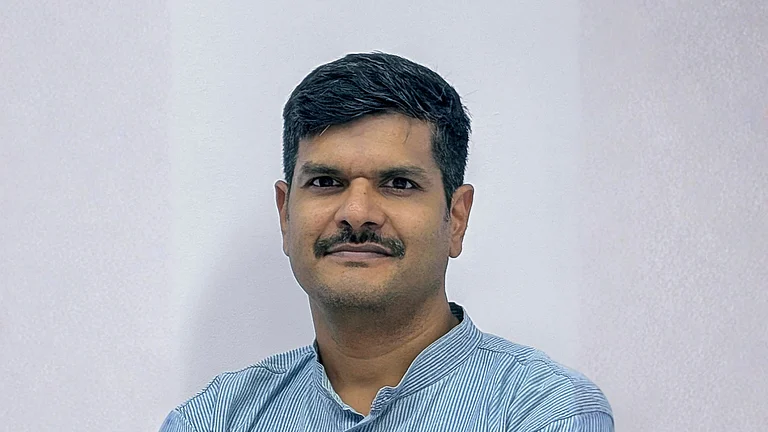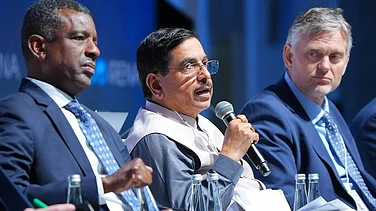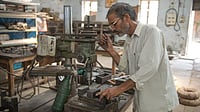The amount of plastic being recycled around the world remains at less than 10% with most new plastic still being made from fossil fuels, revealed a study published in the journal Communications Earth & Environment by Tsinghua University in China, AFP reported.
The study also highlighted that the rate of recycling had barely budged even as plastic production had exploded, creating a “pressing global environmental challenge”.
Plastic has seeped into everyone’s daily lives in the form of apparel, food packaging materials, storage containers, and handsets, among other products. This plastic, when left unrecycled in the environment for a long time, disintegrates into microplastics and permeates land (soil) and oceans alike, from where it enters our food chain while becoming a threat to human health everywhere.
Tackling Plastic Waste Together
Despite the growing international concern, there has been “a notable lack of comprehensive analysis of plastics along their supply chain,” wrote Quanyin Tan and colleagues, according to AFP.
The sports industry generates its own set of waste that needs to be disposed off sustainably. The sports industry already generates a considerable amount of waste as plastic’s low quality and durability make it a popular choice for sports equipment.
Products like shoes, helmets, and racquets use common plastics like polyethylene (PE), polypropylene (PP) and polyurethane (PU). Though useful, the materials do not decompose naturally, contributing to long-lasting waste when the equipment is discarded.
Sustainable Shifts in Sports
This waste, when it reaches the soil and oceans, causes land and ocean pollution. The disintegrated microplastics in the environment harm both humans and animals by entering the food chain through seafood, water and even air. While the final products are lethal to human existence, the process of manufacturing them is equally energy-intensive as it is dependent on fossil fuels. This puts further strain on the environment and speeds up its degradation.
Keeping in mind the toll that the sports retail industry has on the environment, sports retail brands have shifted their focus from producing large amounts of products just to fill their stores, to mindfully creating products to cater to the changing tastes of consumers.
Internationally, companies like Adidas and Nike, among others have already embraced this change by bringing more sustainable products in their respective stores. Adidas has come up with shoes made from ocean plastic, while Nike is incorporating recycled materials into its product. Other brands are also embracing new materials such as bamboo, bioplastics and hemp as eco-friendly alternatives to traditional plastics.
Besides, some brands have consciously reduced using single-use plastic in their stores. For instance, Decathlon, as part of its sustainability efforts, has eliminated 1,663 tonnes of single-use plastic across its entire value chain by 2024. This includes reduction across sectors such as transport and sales, hangers, packaging, single-use plastic consumables in warehouses and shops. Decathlon reported a 57% reduction in single-use plastic usage internationally, achieved through eliminating plastic packaging and hangers in stores.
Another aspect that companies are shifting to is the circular economy model. In its quest to achieve net neutrality by 2050, Decathlon India is also embracing the circular business model by becoming a bridge between the sports retail industry as a whole and their customers to promote circular consumption.
Decathlon is set to launch its sustainability campaign ‘Second Life Bazaar’ from June 5 to 15, across 68 stores nationwide. The ‘Second Life Bazaar’ is an initiative that has been designed to promote sustainable consumption by providing customers with hands on DIY maintenance workshops, buybacks, repair and engage in practical ways to prolong the lifespan of their sports gear.
Talking about the campaign, Sankar Chatterjee, CEO, Decathlon India, said, “We have always believed that accessibility and sustainability must go hand in hand. As our customers evolve,so does our responsibility to offer high-quality, long-lasting products that not only reduce environmental impact but also address affordability. Sustainability is a year-round commitment for us, but the 'Second Life Bazaar' holds special significance as we mark World Environment Day, a moment to reaffirm our dedication to responsible consumption. Through this campaign, we are reimagining sports retail as a space where people can play more, pay less, and make choices that benefit both the planet and their performance.”
Annie George, Leader Sustainable Development, Decathlon India, said, "Circularity is an environmental strategy as well as a transformative approach to how we perceive value. With the 'Second Life Bazaar', we are enabling our customers to actively participate in sustainability by extending product lifecycles, reducing waste, and creating tangible environmental benefits. Our goal is to shift perceptions, inspire sustainable practices, and drive meaningful environmental outcomes through everyday actions."
Moving from a linear business to circular businesses means there are lot of processes across the value chain to be enabled. This is what we are doing one by one. Through its circular models, Decathlon aims to triple its circular turnover by 2027. This represents a projected 200% growth compared to 2024. According to Decathlon’s sustainability strategy, the company aims to divert over 300,000 sports products from landfills by 2027.
Instead of keeping on selling new products, can we as businesses move to selling more services – services like maintain, repair are one part of it and buybacks becomes a second part, adding on to the commercial value.
As part of the 'Second Life Bazaar', Decathlon has started buybacks for cycles and fitness equipment, sales of refurbished sports gear, and repair and DIY maintenance services. Through this, customers get an opportunity to sell their used Decathlon cycles instantly for store vouchers, purchase high-quality pre-loved products at discounts of 30% - 60% off MRP and avail repair services for sports gear including cycles, scooters, rackets and skates.
Can We Make a Conscious Choice?
When purchasing a durable product, can we shift our focus towards maintaining it instead of discarding it? In the world of sports, consumers usually get a product and replace it once it looks unusable. If well-maintained, products can last longer and get more value when it is sold or passed on at a later stage.
In an era of quick commerce, “can we move away from the habit of discarding products prematurely and instead adopt a mindset of repair and reuse?” stated George. The "second life" of a product should be as desirable as its first life. Just like when the single-use plastic ban was introduced, Decathlon launched campaigns encouraging customers to ‘bring your own bag,’ and shifted to paper and cloth bags. It’s not only the brand’s responsibility to make changes—consumers must also play a role.
Speaking about how to measure the success of the Second Life Bazaar, she added,” Acceptance, footfall, people participating would define the real success of Second Life. Workshops and communications that will be happening, the brand would like for more people to come in. If the consumers can understand and embrace the mindset and understand lifecycle or journey of how the consumers maintain a product, donate it, recycle or repair it, that would be more.”
“We want our consumers to be conscious about their repair opportunities,” she added.
Internally, Decathlon is fostering a culture of awareness among its employees. The team is informed of the company’s sustainability goals, and they are working together to achieve them. As for their partners, Decathlon aims to work with like-minded partners. If existing partners cannot meet these standards, Decathlon will look to onboard new ones who are equally dedicated.
While responsible manufacturing the brand’s job, consumer responsibility is equally important. “In the past, consumption wasn't even part of the conversation, but now it is,” George stated.
The link between sports, health and fitness is closely aligned with the Mission LiFE “Lifestyle for Environment” launched by the Central Pollution Control Board (CPCB) in 2022 in India, which aims to promote sustainable and environmentally conscious way of living – something the world desperately needs in today’s age.






